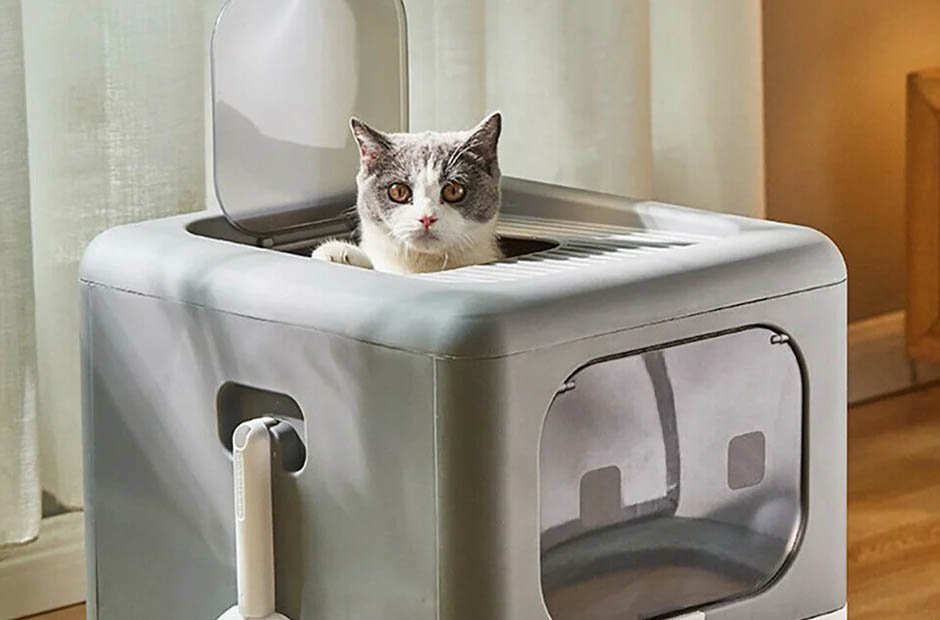Litter boxes are an essential part of your cat’s daily life, providing a designated space for them to relieve themselves indoors. While it may seem like a basic necessity, litter boxes serve several important purposes that contribute to your cat’s health and well-being. Learn more about six reasons that your cat needs a litter box and the impact that they have on your pet.
Table of Contents
Instinctual Behavior
Cats are naturally inclined to bury their waste, a behavior inherited from their wild ancestors. In the wild, covering their scent helps them avoid detection by predators and rivals. Providing a litter box mimics this natural behavior and satisfies your cat’s instinct to bury their waste, promoting a sense of security and comfort in their environment.
Cats also prefer to eliminate in areas with loose, granular substrate, such as sand or soil. Litter boxes for cats filled with clumping or non-clumping litter provide a suitable substrate for your cat to dig and bury their waste, fulfilling their instinctual preferences and encouraging proper litter box use.
Hygiene and Odor Control
One of the primary benefits of a litter box is maintaining a clean and hygienic environment for both you and your cat. By providing a designated area for your cat to eliminate, litter boxes help contain waste and prevent it from soiling other areas of your home. Regular scooping and cleaning of the litter box help minimize odor buildup and ensure a fresh-smelling environment.
Preventing Accidents
Without access to a litter box, cats may resort to using the bathroom in unwanted areas, such as carpets, furniture, or clothing. This behavior, known as inappropriate elimination, can be frustrating for cat owners and difficult to address. Providing a litter box ensures that your cat has a designated area for elimination, reducing the likelihood of accidents and preserving your home’s cleanliness.
For multi-cat households, it’s essential to provide enough litter boxes to accommodate all cats’ needs. Cats may be territorial and may not want to share a litter box with other cats. Having multiple litter boxes scattered throughout your home ensures that each cat has access to a litter box when needed, minimizing conflicts and accidents.
Behavioral Health
Litter boxes play a crucial role in maintaining your cat’s behavioral health and emotional well-being. Cats are creatures of habit and thrive on routine and consistency. Having a clean, accessible litter box provides your cat with a sense of security and predictability in their environment, reducing stress and anxiety.
Changes to your cat’s litter box routine or environment can disrupt their litter box habits and lead to litter box aversion or inappropriate elimination. It’s essential to keep your cat’s litter box clean, accessible, and located in a quiet, low-traffic area to promote a positive litter box experience and prevent behavioral issues.
Monitoring Urinary Health
Regular use of the litter box allows you to monitor your cat’s urinary health and detect any potential issues early. Changes in litter box habits, such as increased frequency of urination, straining, or blood in the urine, may indicate underlying health problems, such as urinary tract infections or bladder issues.
By observing your cat’s litter box behavior and monitoring the appearance and frequency of their urine and feces, you can identify any abnormalities and seek prompt veterinary care if necessary. Early detection and treatment of urinary issues can help prevent more serious health complications and ensure your cat’s continued well-being.
Providing a Safe Indoor Environment
For indoor cats, litter boxes provide a safe and convenient alternative to going outside. By providing a litter box indoors, you can protect your cat from outdoor hazards, such as traffic, predators, and inclement weather. Indoor cats may feel vulnerable or unsafe venturing outdoors, especially in unfamiliar or dangerous environments.
A clean, well-maintained litter box offers indoor cats a safe and private space to eliminate without exposing them to potential risks or dangers. It allows them to satisfy their natural instincts while remaining safe and secure in the comfort of their home.
Litter boxes are essential for maintaining your cat’s health, hygiene, and behavioral well-being. By providing a clean, accessible litter box and maintaining a consistent litter box routine, you can ensure that your cat feels safe, comfortable, and secure in their environment. Whether you have a single cat or multiple feline companions, providing adequate litter box accommodations is crucial for promoting a positive litter box experience and fostering a strong bond with your furry friend.










